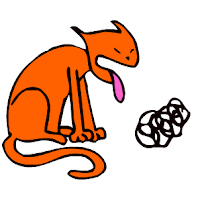If you are trying to potty train your pet, crate training is the best way to housebreak and train any puppy. Canines do not like to defecate or urinate in the place where they sleep. Therefore, with some precautions, keeping a puppy in a crate during the day and night are good for both the owner and the puppy. Puppies take naturally to crates as wild dogs do to their dens. A crate therefore becomes the puppy's den, a place of security, and the owner should not think of it as a "cage".
When crate training your pet, be sure to keep the crate away from any noisy places in the house. It should be big enough for the puppy to turn around and lie down. If it is a faster growing breed, then it would be best to start out with a bigger sized crate and then put a barrier up at first to make it smaller or else the puppy will go to the bathroom at one end and sleep at the other, thus ruining the training.
After a crate is picked out, you will need to decide on a crate training schedule. Most small puppies can only hold it in for 3-4 hours or so before it must go to the bathroom. Be sure the puppy has a chance to go out 20-30 minutes after it eats and drinks in the morning before it goes in the crate. As the puppy gets older, the longer the puppy will be able to hold it in. As night, the puppy again should be let out before it goes to bed. This will keep your pet in routine and your puppy will become accustomed to the scheduling of when it gets to go out.
Once the puppy knows the crate as its den, it will love that place and happily go inside any time the owner goes out. When crate training, it is important to remember the following:
1) No food or water in the crate
2) The younger you start, the better; older puppies not crate-trained will have a difficult time accepting confinement and may even break the cage.
3) Never send a puppy to the crate as punishment as that will defeat the purpose of crate training.
4) Always remove the collar before putting the puppy in the crate otherwise it could get stuck on a part of the cage and choke itself.
Pet Lover's of all kinds can view blog posts about pets and view pet pictures. You can find pet news and issues or find links to favorite pet sites like www.petdepotonline.com
Monday, May 18, 2009
Monday, May 4, 2009
Hairball Remedy

If you own a cat, then you have more than likely experienced the unpleasant nature of hairballs. If a cat is throwing up food, coughing, or spitting up hair, hairballs may be the cause. Cats lick themselves constantly, and therefore they swallow a lot of hair. Hair is very hard to digest and stays in the stomach, forming what we call hairballs. The Natural Defense Hairball Remedy can help eliminate hairballs in cats. Most cats will readily eat this product, but if not, a dab can be placed on the cat's food or nose and the cat will most likely lick it off. The hairball remedy will dissolve the hair allowing it to pass through the digestive system. If vomiting or hacking continues, consult your veterinarian. There are also treats or cat food available that can also assist your cat in eliminating hairballs.
Subscribe to:
Posts (Atom)